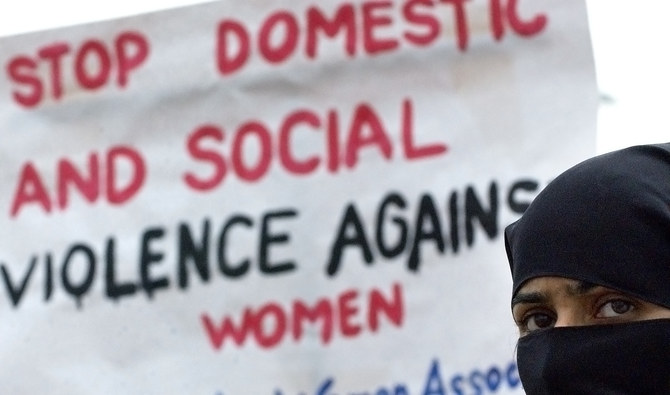- The study published in JAMA Psychiatry reveals a strong link between rising temperatures and an alarming increase in domestic violence against women in three South Asian countries (India, Pakistan, and Nepal).
- If carbon emissions continue without restraint, the study projects a substantial rise in intimate partner violence (IPV) by the 2090s.
- India is expected to witness the highest increase at 23.5%, followed by Nepal at 14.8%, while Pakistan shows the lowest increase at 5.9%.
A recent study published by JAMA Psychiatry has discovered a strong connection between rising temperatures and a significant increase in domestic violence against women in three South Asian countries. As deadly heatwaves, landslides and urban flooding sweep through various cities worldwide including Pakistan, the ongoing climate crisis is not just deterring weather but also affecting the level of violence in the countries most affected by climate change.

According to the study a minor 1-degree Celsius increase in average annual temperature corresponds to a staggering rise of over 6.3% in incidents of physical and sexual domestic violence across three nations in South Asia which include India, Pakistan and Nepal.
Research Methodology and Findings
The study monitored the experiences of emotional, physical, and sexual violence reported by 194,871 girls and women aged 15-49 in India, Pakistan, and Nepal between 2010 and 2018. Simultaneously, it examined the temperature fluctuations that occurred during the same period. Amongst the three countries studied, India already had the highest reported rates of intimate partner violence, and it experienced the most pronounced escalation in abuse. A mere 1-degree Celsius increase in heat resulted in an 8% surge in physical violence and a 7.3% increase in sexual violence and a 4.9% rise in domestic violence.
Also Read:
UN Seeks Urgent Reforms in Family Courts to Protect Women and Children Against Abuse
Projected IPV Increase in South Asia: Pakistan Shows Lowest Increase at 5.9%
According to the study, if carbon emissions continue unabated, it is projected that by the 2090s, India will witness the most substantial increase in the prevalence of intimate partner violence (IPV) at 23.5 percent. Nepal is expected to follow with a rise of 14.8 percent, while Pakistan is anticipated to experience a 5.9 percent increase.
Factors Contributing to Domestic Violence in a Warming Climate
The increase in global warming and hotter climate brings forth several factors that contribute to domestic violence. The growing intensity and frequency of heatwaves in countries like Pakistan can directly activate brain regions associated with regulating body temperature and emotions, potentially leading to increased aggression.

Also Read:
EIU Global Index: Karachi Ranked 5th Least Liveability City
Moreover studies have shown that exposure to acute heat has been linked to heightened production of adrenaline, which can result in heightened physiological arousal. Additionally, heat-related events can have harmful effects on mental health, which in-turn increases the risk of intimate partner violence.
Furthermore, the economic strain resulting from reduced agricultural productivity and decreased labor efficiency, coupled with the deteriorating living conditions caused by extreme weather events, can further worsen the issue of intimate partner violence in the South Asian Countries.
Stay tuned to WOW360 for all the latest news and updates.
